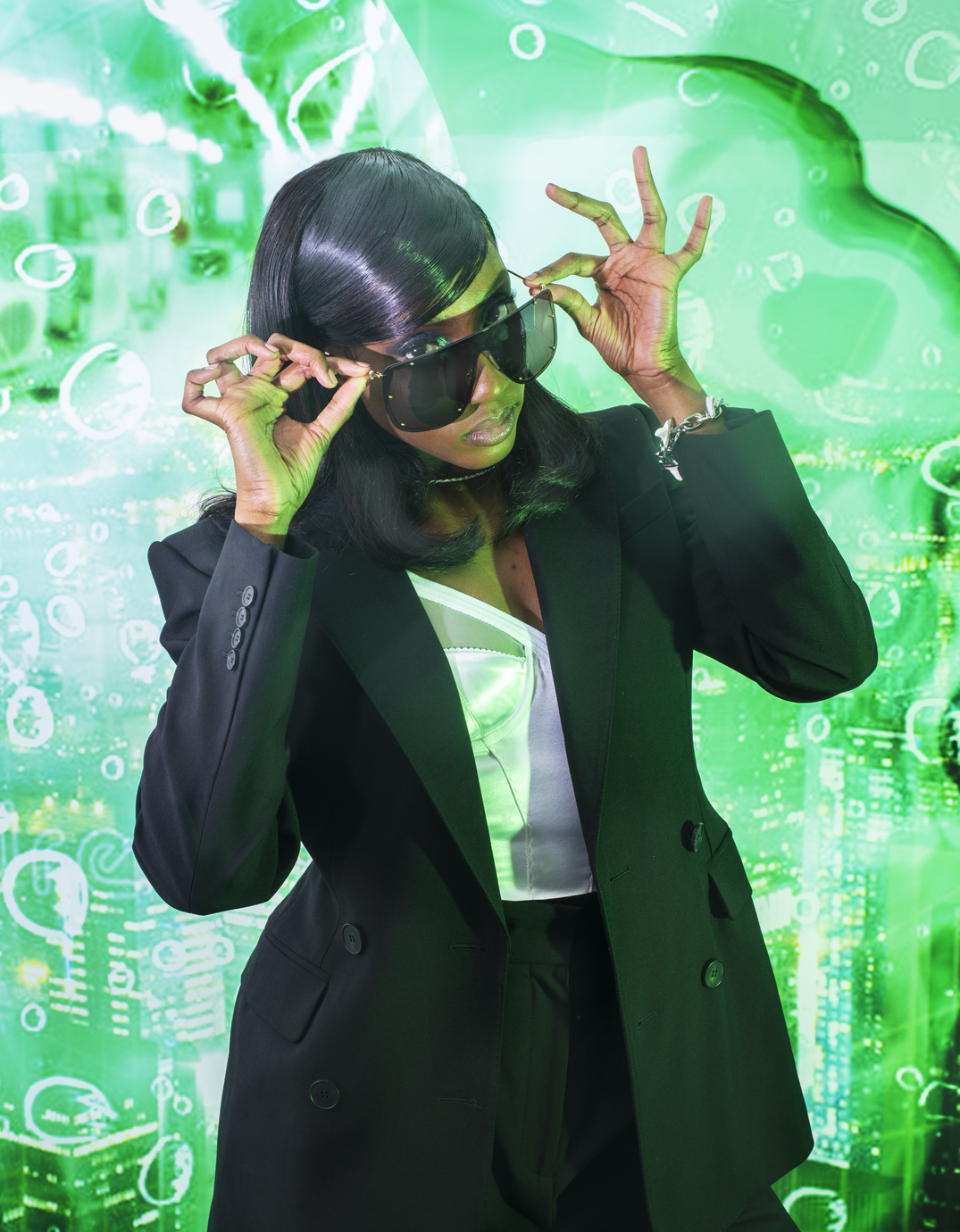
Leah Hennessey: What’s your new show? Are you sick of explaining it yet?
Ziwe: I have a variety show that’s premiering on Showtime, May 9. I actually just got off an edit session to talk to you. What I like about the show is it is so diverse and they are so many different aspects to it. There are interviews, music videos, fake commercials, sketches and there are field pieces. If I ever got bored making the show and talking about it, then that would be troubling.
LH: I’m really excited to see how you push all your techniques with your new show. Your natural comic timing is obviously inspired but the way that you work the edit, I can see that you’re thinking about post tricks and little treats. Seeing how multimedia-dense and fast-paced your work like Baited is and then comparing that to your Instagram Lives, which are so raw, makes me wonder: does it ever get frustrating that audiences seem so much more ravenous for your unfiltered work? The work with the least artifice and art?
Ziwe: I cannot control how people react to my work. I wish I could, but I can’t. All I can do is cast a wide net, because I’m someone who has multiple interests. I really like the intensive 60-minute interviews with Alyssa Milano and Caroline Calloway, as much as I do the hyper-produced aspects of an interview with Gary Richardson, as much as I like a music video with just me.
It’s, like, pick your poison as an audience member. You might respond to the music videos or you might not have any clue that I do interviews, or you might like my hyper-produced interviews, but you might not watch my Instagram Live show because it makes you anxious. It’s really up to you as a consumer, as a viewer to decide what you like, but I can’t choose what’s more important to me, because they’re all important to me, because I invest my time, energy and hard work into each of them.
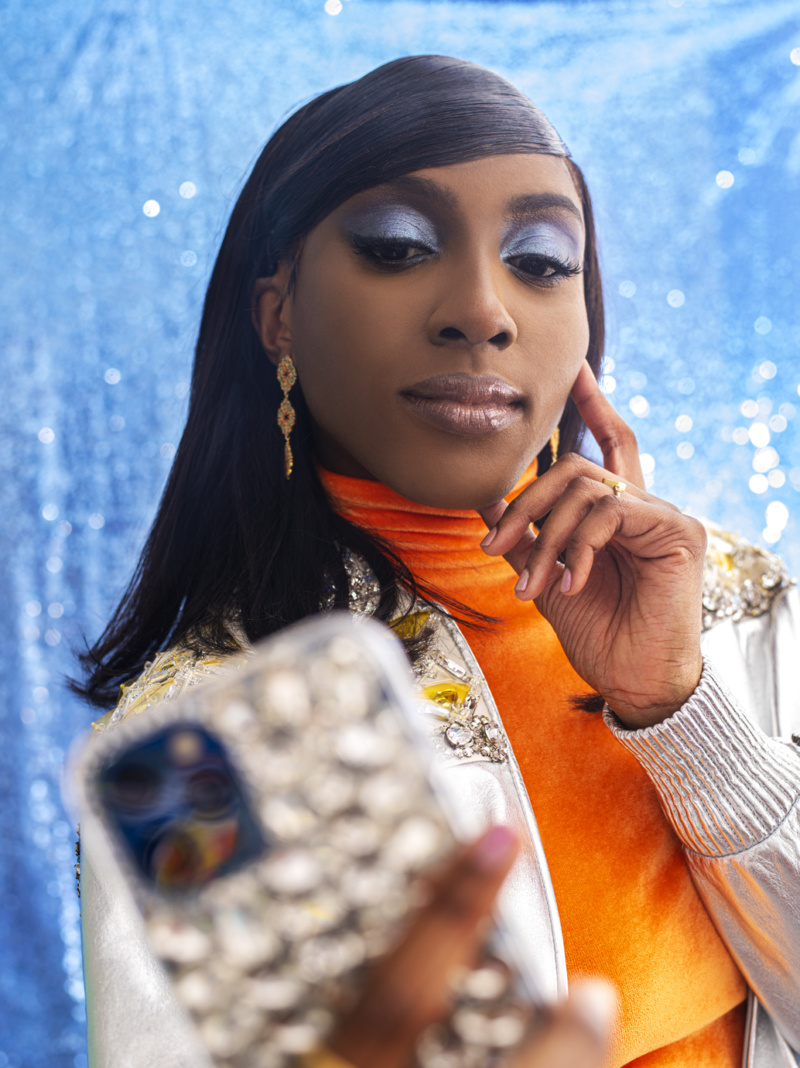
LH: In the intro for your song “AOC Bamba” you said, “While my artistic triumphs usually erupt from the heart, this video is an emanation of the mind.” I thought that was intriguing. Do you have a heart-mind split with where your work comes from?
Ziwe: It’s complicated because my work is mostly satirical. Just from that perspective, I have to have a strong POV, but in that strong POV, I think that there’s criticism worthy of every sort of subject, myself included. I make fun of myself in my work because I’m very aware of the fact that I’m not perfect, I don’t know everything, I’m human.
That’s the heart-mind split where, obviously, I enter my POV as a Black woman that grew up in New England, who is a Pisces and went to private institutions, but attended public elementary school. All of these things collect to make me have certain perspectives on the world and certain really strong takes, but ultimately, I like to take a step back with analysis because I am open to learning. I’m open to changing my mind. I’m open to being wrong. That critical thinking plus my emotional approach is really what drives my satire because I want to say things that are really sharp and poignant.
LH: Why do you think people are more interested in the raw unfiltered interview-style stuff and aren’t as hot for these genius funny songs you’re doing?
Ziwe: I don’t know. Here’s the honest-to-God truth, my YouTube Baited series, that was criminally under-watched. It did not blow up until I broke out with my Instagram Live series, but mind you, what I was doing with Instagram Live, I had been doing that series on every Thursday for two months before anybody noticed, so I would interview someone, it would get 20 views, and I would want to apologize to them because no one was watching.
I can’t create my work because of what’s hot and what’s the trend. If you’re always chasing something, you’re never going to catch up. You’re following the trend and not setting it. All I can do is continue to make and create stuff that I believe in, that has value and that isn’t just for the moment but can last for a long time. It has shelf life. With Baited and my YouTube series Ziwe, you could watch them today and it’s still pertinent to the conversation that we’re having.
Then my hope with the interviews I did with Caroline Calloway, Alexis Neiers, Alyssa Milano, is that while I did them in December of 2020, while there was a racial reckoning happening, that you could watch these videos in 10 years and they would still be crucial to the conversation about racial discrimination in the United States.
Similarly, my hope with the music that I create is that in 10 years from now, while it may not have 10 million views, it might not be the hottest song on YouTube, people can still take something from the art. That it’s useful and thoughtful and still relevant. I’m really not trying to make things inherently to be the hot new thing. I’m just trying to make work that is sustainable and thoughtful and that has a really important, crucial, unique and fresh approach. Whether I’m ahead of the curve by several years and no one cares, I can’t control that. All I can control is what I make and what I say.
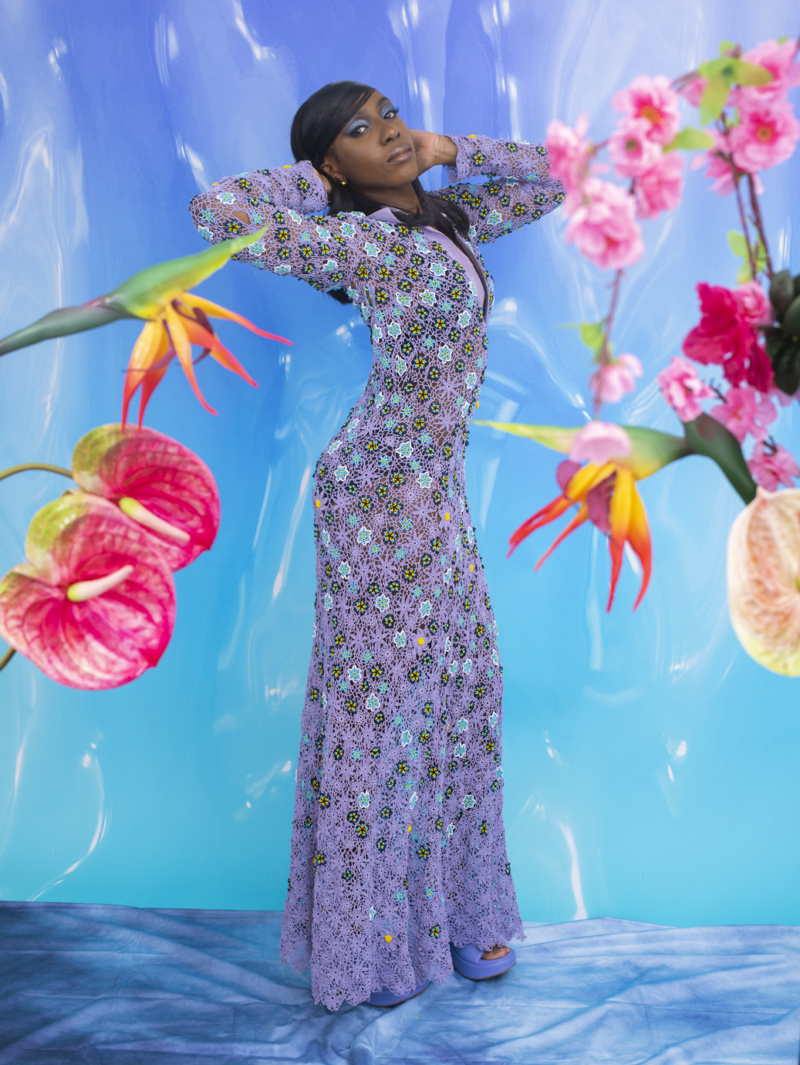
LH: The dichotomy between sustainability and being prolific is really illuminating, because what you’re saying is exactly right, which is that it’s about making things sustainably. For some people, that might mean putting a video out every month and then for some people that might mean making something every year. It’s not about quantifying it.
Ziwe: Yes. Honestly, it’s about quality for me. My proudest moment is the fact that people watch my YouTube series and say, “Wow, this is so funny,” three years, four years, five years later after I’d made it, back when I was in my early 20s and didn’t know really much about producing. Hopefully, that’s the case with my other work, but if not, I’ll continue to create important things to me. All I can do is entertain myself.
LH: So, during the pandemic everyone got really domesticated and cozy, but also just sat in pure terror, which is a very weird combination. It’s interesting that some of your stuff really is blowing up under these conditions, because it’s almost like you are simulating social failure, or social discomfort, which is the opposite of this comfort-seeking mode that people have been in. In a sense do you think people are starved for social failure?
Ziwe: Oh, I had never considered that. I don’t know if people are starved for social failure.
LH: When we’re so isolated, we crave contact and love and being seen and affirmation, but I also think that there’s a part of us that craves the high stakes of socializing.
Ziwe: Yes, I don’t know about that, but what I can say is that there was a sense of community in the comment section of my Instagram Lives, that is undeniable, where the show was an interview, but the show was also who was in the group chat, who was in the comments, anyone from Janelle Monáe to Kalani to Julio Torres to Quinta Brunson, there was a wide range of people engaging. It was like you were in a movie theater and people were talking. It was invoking that feeling that we hadn’t experienced because we were all isolated in the pandemic to not spread the disease. I definitely think that the communal experience was alive during my Instagram Live for sure.
LH: I’ve definitely seen that on some Lives. I wonder if anyone’s ever fallen in love in the chat section.
Ziwe: I don’t know, but that would be sick. I would love to be a minister and bless their wedding.
LH: Oh my God, now someone’s going to read this and then lie and say that they fell in love on your Instagram Live.
Ziwe: That’d be awesome. I’d be happy to do it.
LH: I know in your song “No Notifications” you say, “What are you going to do when you get offline?” But what are you going to do?
Ziwe: You die.
LH: That’s it. Die?
Ziwe: What am I going to do when I get off-line? Is that the question?
LH: Yes.
Ziwe: Rest, but there’s a long way to that. There’s a long way before I get off-line, I have a lot of work to do.
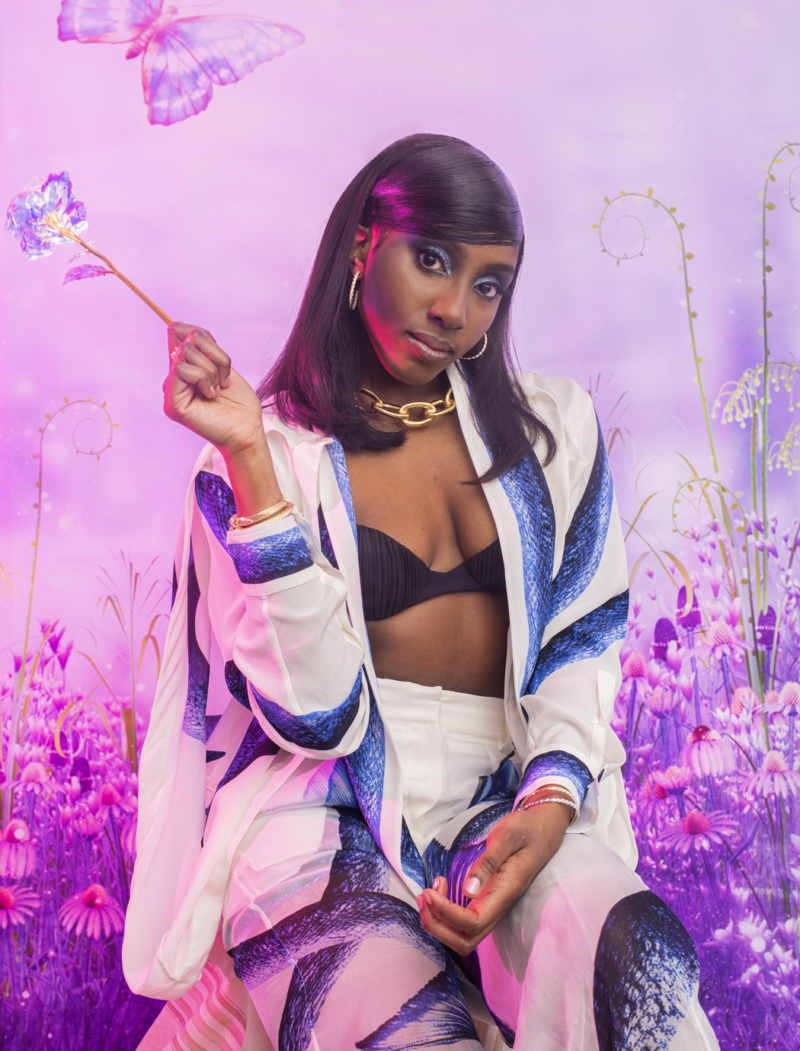
LH: Do you love being online?
Ziwe: It’s not that I love being online, it’s that being online is at the crux of my work. I grew up at a time where the Internet has acted as a blessing and a curse. As a curse, because it united people who don’t believe that people of color should have human rights. But conversely, I’ve been able to get past roadblocks and gatekeepers and break through in a way that was physically impossible to do had I been 10 years older. Because of the Internet, as a young Black woman who is funny and has quippy short things to say and who has a love for media, I’m able to create and people are able to see my work.
There’s no Instagram Live without the Internet, I couldn’t have had those conversations about race in the public sphere without it. I don’t even know how I would have learned enough about Bernie Sanders and universal health care to make a song called “Universal Healthcare” and talk about how it’s a human right without the Internet. While the spread of misinformation is real, I also have to credit the Internet for how I’ve been able to expand my platform and hopefully say things that are important and reflect and speak for people who maybe aren’t able to.
LH: When you go on Instagram Live, for instance, do you feel like you’re getting ready to do a performance in a hyped-up way, or do you feel dread?
Ziwe: I don’t feel dread, but I feel nervous. I always want to make sure I’m asking the right questions. I don’t want to offend anyone or make any jokes that don’t punch up. I was so nervous before my Alison Roman interview because I wanted to support a community that I’m not a part of in a way.
With each interview, I feel responsible for creating a productive conversation that helps and doesn’t hurt. That’s really important to me and that’s what you’ll see with my Showtime A24 show. That’s even the case with my music and my YouTube series. I’m not trying to create negativity. I’m not trying to tear anyone down. I’m just trying to have productive, thoughtful conversations that really empower people to live their best lives and to go forth in the world and be better people, myself included.
I want to leave my interview feeling like I am healing and not hurting. If you’re asking how do I feel before my Instagram Live, I feel responsible. I still proceed with all of those mixed emotions anyway because I’m human. All I can do is go forward with intentions and then try to be exact in my intentions, and then if I fail, apologize, and if I do well, continue to the next project and bring those same concerns and excitements and joys and fears to whatever I do, so that I can continue to make productive, thoughtful, meaningful art that stands the test of time, hopefully.

LH: You really understand that conversations are a game and that there’s ways to heighten the tension and create an arc.
Ziwe: Oh, thank you. I’ve written all my life, so I approach words as if they have power.
LH: If everyone could imagine that, what a beautiful world we’d live in.
Craving more culture? Sign up to receive the Cultured newsletter, a biweekly guide to what’s new and what’s next in art, architecture, design and more.

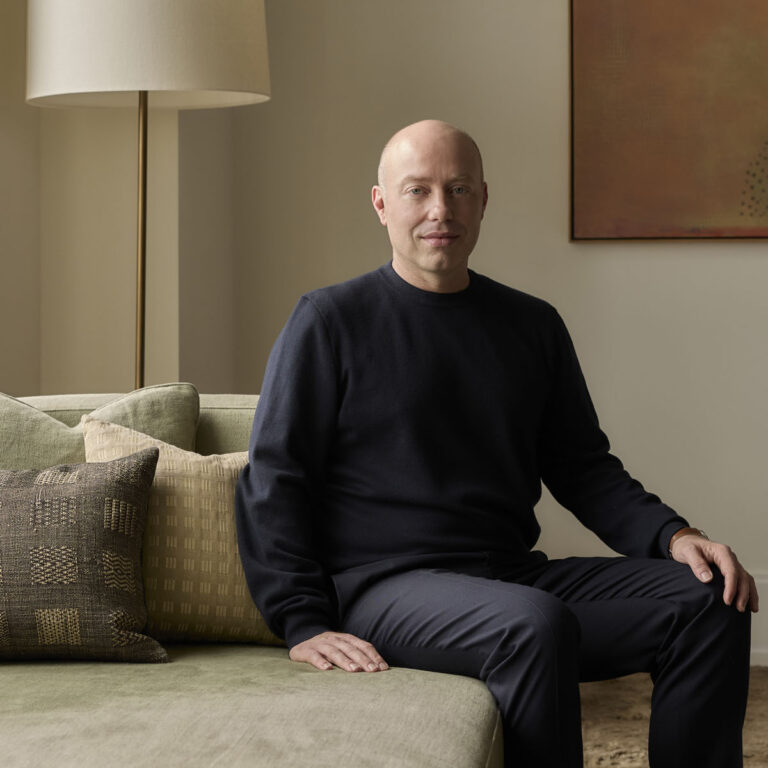
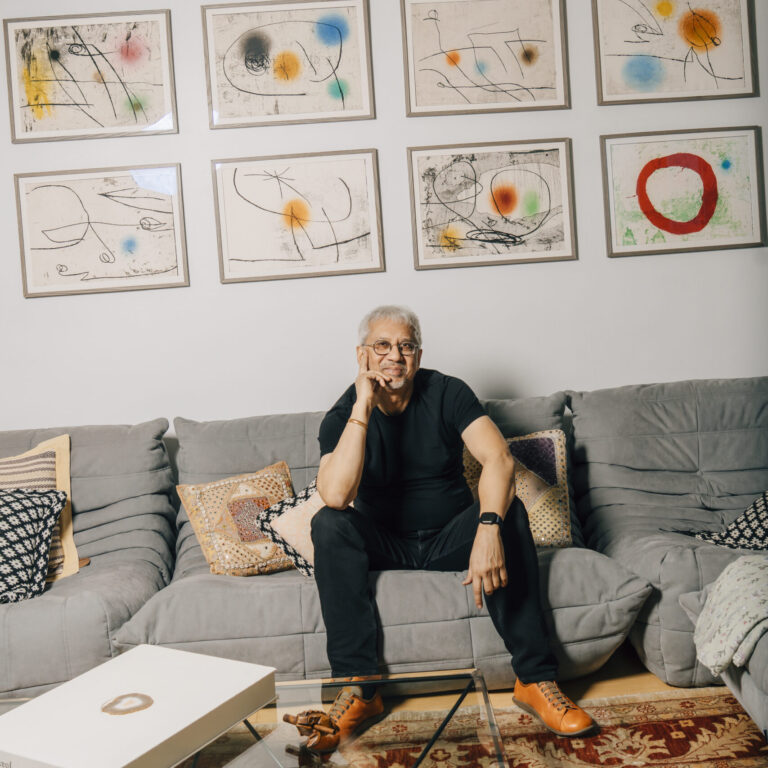
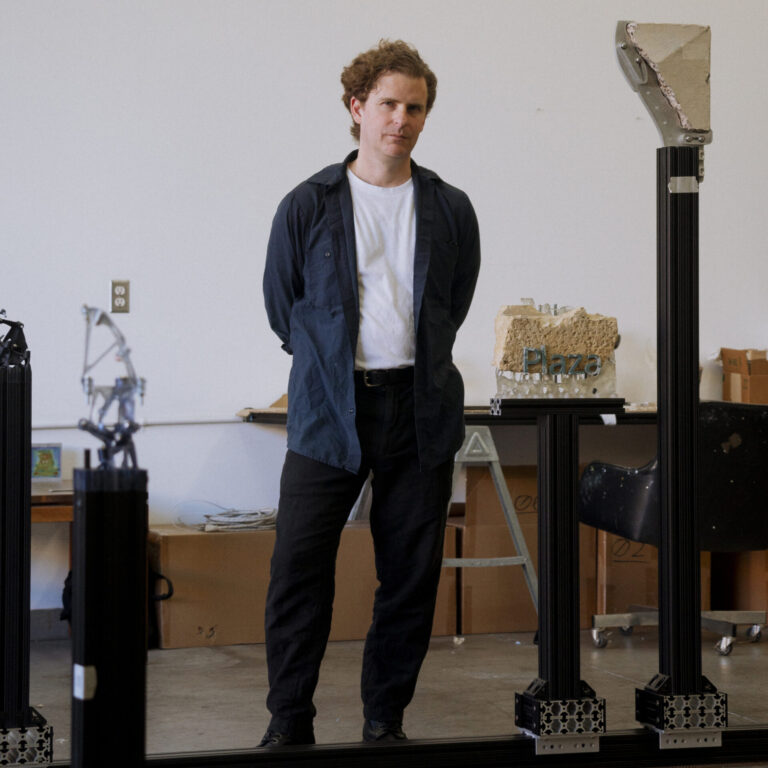
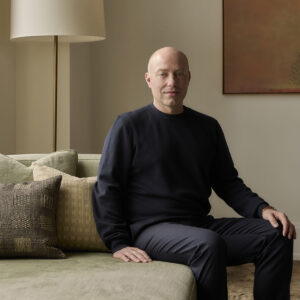
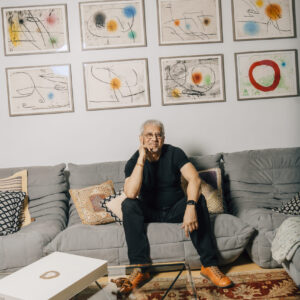
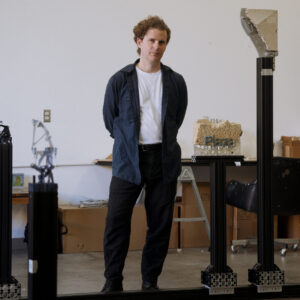



 in your life?
in your life?

